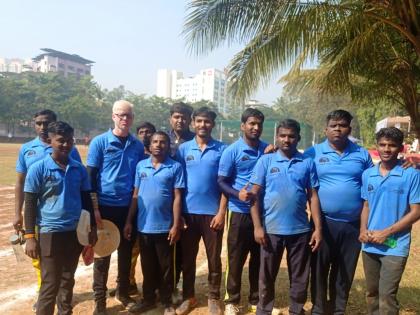In the Blind Spot: Thane's Visually Impaired Cricketers Fight for Recognition
By Nirmeeti Patole | Published: December 26, 2023 05:05 PM2023-12-26T17:05:54+5:302023-12-26T17:09:45+5:30
On a sun-drenched pitch in Thane, eight teams battle for cricket glory. But here, the roar of the crowd ...

In the Blind Spot: Thane's Visually Impaired Cricketers Fight for Recognition
On a sun-drenched pitch in Thane, eight teams battle for cricket glory. But here, the roar of the crowd is replaced by the tap of canes and the chiming of a specially modified ball. This is the world of blind cricket, a hidden corner of Indian sport where talent and tenacity collide with systemic neglect. Sushil Patil, a batsman from Pune, speaks with quiet intensity. "We play just as hard as the sighted players," he says, his fingers tracing the raised seams of his cricket bat. "But our practice grounds are cracked concrete, our equipment outdated, and sponsorships? A distant dream." His frustration echoes across the ground. Amol Kharche, a star batsman who represented India internationally, asks, "We wear the blue jersey, we hear the national anthem, yet basic support eludes us." The sting of discrimination is palpable, their cries for fair pay and better facilities met with empty promises from cricket authorities.
But amidst the challenges, resilience shines. The Rotary Club of Thane has been a saviour, organizing the state-level tournament that brings these cricketers together. Neha Nimbalkar, the convener, acknowledges the systemic issues but emphasizes their commitment. "We can't solve the problem," she says, "but we can give them a platform to be seen." However, a single tournament is a mere bandage on a gaping wound. Arun Baraskar, chairman of the Blind Welfare Association, stresses the need for systemic change. "Blind cricket thrives in the metros," he says, "but in rural areas, talent withers for lack of awareness and resources." Gopal Wankhede, a veteran player, chimes in. "We need more tournaments, better equipment, and a future where our children can dream of a career in blind cricket, not just menial jobs." The clink of his specially designed ball, filled with bearings to provide audio cues, underscores his point.
Open in app

